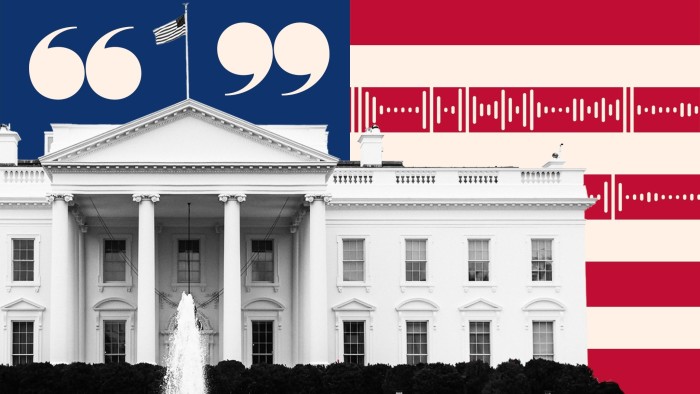The surveillance footage shows an unremarkable suburban scene: a dark SUV pulls into the parking lot of an upscale grocer. A woman wearing sunglasses steps out. She retrieves a purple gift bag from the back seat, glances over her shoulder, and then drops it into a rubbish bin on her way into the store.
A jury in Wilmington, Delaware was told last week that the woman was Hallie Biden, the former daughter-in-law of the current US president. Inside the bag was a pistol belonging to Biden’s troubled son, Hunter, who, it transpires, was having an affair with Hallie — his late brother’s widow. In the course of that relationship Hunter also turned the mother of two on to crack cocaine.
The week-long criminal trial, in which jurors began their deliberations on Monday, has focused on Hunter Biden, and whether he lied on a federal background check about his own drug addiction when he bought that pistol in October 2018 at a local store called StarQuest Shooters & Survival Supply.
But the trial has also provided something else: a raw — at times excruciating — glimpse into the turmoil of the Biden family after the president’s oldest son and presumed political heir, Beau, died in 2015 from brain cancer.
Whether it has any political implication for Biden as he fights for re-election is unclear. A survey by Emerson College Polling earlier this month found 64 per cent of voters said the trial would not affect how they will vote.
Republicans have for years tried, and mostly failed, to pin the sins of Hunter on his father — be it his drug abuse, failure to support a child fathered out of wedlock, or his business dealings. Their efforts have intensified as former president Donald Trump’s campaign has become burdened by his own legal woes.
Unsavoury as the trial’s revelations have been, though, some believe it might also remind voters of Biden’s virtues as a father, particularly at a time when so many American families are dealing with drug addiction.
That is the view of Chris Whipple, who chronicled the family in his book The Fight Of His Life: Inside Joe Biden’s White House. “For, me, the trial confirms what we’ve always known about Joe Biden,” Whipple said. “It’s just hard to overstate how strong the bond is between him and Hunter. How close they are.”
Even if his political career demanded it, Whipple is convinced the president would never cast Hunter aside. “Family is everything to Biden,” he observed.

As Hunter himself told the New Yorker in 2019, he was a kind of security blanket for his father on the campaign trail. “I can say things to him that nobody else can,” he explained.
Their bond was forged in Kennedy-esque tragedy that is both family lore and political biography. Biden’s young wife and daughter were killed in a car accident a week before Christmas in 1972. Just 29, the newly-minted senator was sworn into office days later at the hospital bedside of his boys, Beau and Hunter, who survived the accident.
As he has often recounted at campaign events, Biden would ride the train home from Washington, DC each evening to kiss his boys goodnight. Beau’s untimely death has added another chapter to the story. As he ran for the presidency in 2020, Biden cast his fallen son as his inspiration and guiding spirit.
Behind the scenes, though, the grief-stricken family was cratering, as Hallie recounted from the witness stand on Thursday. Within months of Beau’s death, she and her brother-in-law began a “complicated” romance. Hunter would disappear for weeks on end — often bingeing on drugs. The first time she found his stash of crack at her house she had to consult Google, Hallie said, because she did not know what it was. Soon she was smoking it, too. She became paranoid that he was seeing other women.
“It was a terrible experience I went through,” Hallie, now sober and recently remarried, told the court. “I’m embarrassed and ashamed and I regret that period of my life.”
Hunter did not testify but prosecutors played extended clips from the audiobook of his 2021 memoir, Beautiful Things, last week. He was forced to listen as his own voice filled the courtroom, narrating his descent into crack addiction.
“I’ve bought crack cocaine on the streets of Washington, DC, and cooked up my own inside a hotel bungalow in Los Angeles. I’ve been so desperate for a drink that I couldn’t make the one-block walk between a liquor store and my apartment without uncapping the bottle to take a swig,” he intoned in one passage.
Have your say

Joe Biden vs Donald Trump: tell us how the 2024 US election will affect you
While Hunter’s flaws have been extensively recounted — be it arranging to meet with dealers or standing up his daughter on a visit to New York —there have also been occasional flashes of his charm, as a former stripper he briefly dated testified. “He was just so charming and so nice,” she recalled. “I felt myself having feelings for him.”
As is their habit — and perhaps, to their detriment — the Bidens have not abandoned Hunter. If anything, they have pulled him closer. In the run-up to the trial, he has been a regular presence at the White House, even attending state dinners.
Meanwhile, his second wife, Melissa, has been supported in court by a rotating cast of family and friends, including first lady Jill Biden and the president’s sister, Valerie. Other members of the Biden orbit present in court include Kevin Morris, an entertainment lawyer and friend of Hunter, Fran Person, the president’s former personal aide, and philanthropist Bobby Sager.
President Biden, who last week said he would not pardon his son if he is convicted, has not attended. Still, he has been a spectral presence: His smiling portrait hangs in the lobby of Wilmington’s federal courthouse.
On the eve of the trial, he issued a statement that suggested even the commander-in-chief was not exempt from the parental anguish induced by a wayward child. “I am the president, but I am also a dad,” Biden said. “Jill and I love our son, and we are so proud of the man he is today.”






























